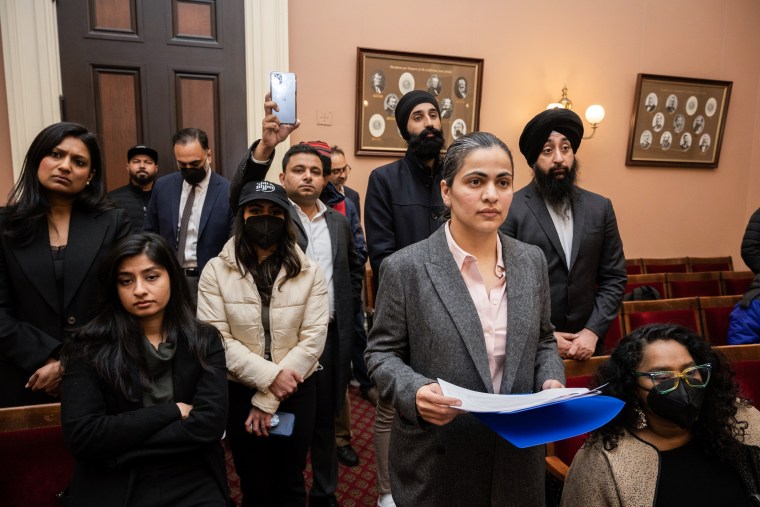A bill that would have made California the first state to explicitly ban caste-based discrimination was vetoed Saturday by Gov. Gavin Newsom. After a year of advocacy and a monthlong hunger strike, progressive South Asian groups were disappointed — but said that the caste equity movement is just beginning.
“We are very proud of the power and resilience that caste-oppressed people across the state have shown in their advocacy for SB403,” Thenmozhi Soundararajan, a caste equity activist and founder of the civil rights organization Equality Labs, said in a press release. “While it is heartbreaking to receive the Governor’s veto, it is not a reflection of the incredible democratic power that our communities showed. We did the impossible.”
Senate Bill 403, introduced in March by Democratic state Sen. Aisha Wahab, would have delineated caste as being protected under the existing category of “ancestry” in the state’s civil rights law.
It sparked dialogue in South Asian communities about the lingering effects of the caste system and how they present in American life. Many who identify as caste-oppressed went public with their stories in the process of moving the bill forward, saying they’ve faced violence, harassment and exclusion, particularly in the workplace.
In a veto message, Newsom noted that California already bans discrimination on the basis of sex, race, color, religion, ancestry, national origin, disability, gender identity and sexual orientation. When interpreted broadly, he said, this implicitly includes caste.
“Because discrimination based on caste is already prohibited under these existing categories, this bill is unnecessary,” his message said.
Wahab’s office did not respond to a request for comment on the veto.
In March, Wahab told NBC News: "This is a human rights bill. ... This is a bill that will allow people to pursue their American dream to the fullest potential without any restrictions based on where they come from, how they look or how they were treated somewhere else.”
Many in civil rights spaces said SB403 would have given Americans born into caste-oppressed groups a channel to fight discrimination legally, but other South Asian groups said the bill was racist, promoted falsehoods about Hinduism and put a target on the backs of Indian Americans.
“With the stroke of his pen, Governor Newsom has averted a civil rights and constitutional disaster that would have put a target on hundreds of thousands of Californians simply because of their ethnicity or their religious identity, as well as create a slippery slope of facially discriminatory laws,” Samir Kalra, managing director of the Hindu American Foundation (HAF), said in a press release.
They celebrated the bill’s veto, saying the mention of caste in U.S. law was never needed.
“We at HAF have always said that any discrimination on the basis of ‘caste’ violates not only Hindu teachings, but also existing state and federal law,” Suhag Shukla, the foundation's executive director, said in the release. “We hope to move forward without hatred or malice to bring together our community which SB-403 so unnecessarily divided.”
As the caste equity movement continues to grow, Fresno, California, has become the second U.S. city, after Seattle, to officially add it to its discrimination law. Advocates say that, though SB403 was vetoed, how far it progressed signals change.
“The introduction of SB-403 represents the shifting tide in California to understand caste-based discrimination,” activist Nirmal Singh, one of the hunger strikers, said in a press release. “The fact that caste-oppressed people were given a platform to stand up for our basic human rights is a huge win in and of itself.”

